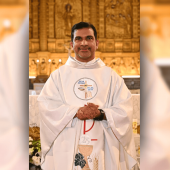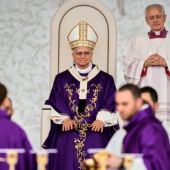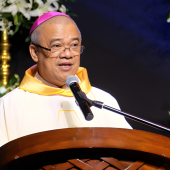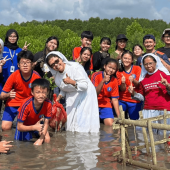Problems with AI use in Singapore’s universities underscore Pope’s concerns over the technology
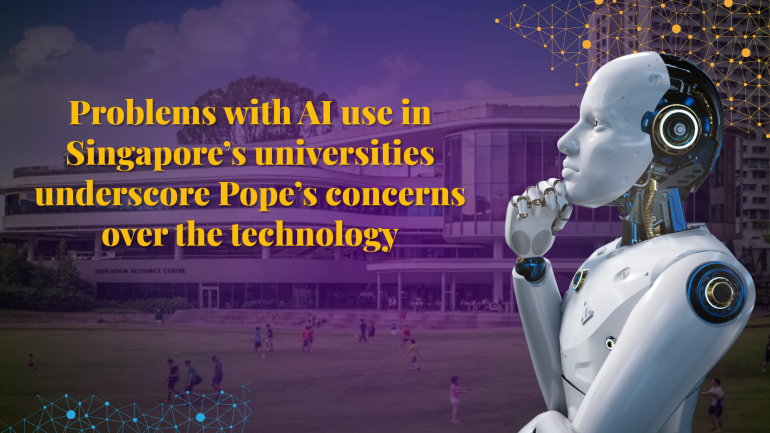
Even as Pope Leo XIV warned that the rapid development of artificial intelligence “raises deeper questions" on its use in forging a more authentic and human society, university lecturers and students in Singapore are grappling with potential pitfalls in its use in academia.
In his message to the Second Annual Rome Conference on Artificial Intelligence, Pope Leo observed that although AI “has opened new horizons on many different levels”, it also raises “troubling questions … on our distinctive ability to grasp and process reality. "
The Pope told participants at the June 19-20 meeting, held in Rome and the Holy See and which included executives of leading AI companies, that their presence “attests to the urgent need for serious reflection and ongoing discussion on the inherently ethical dimension of AI, as well as its responsible governance.”
The pontiff’s words of caution appear to be especially relevant to the use of AI in Singapore’s academic scene, as reported recently by Singapore broadcaster Channel NewsAsia (CNA).
In a Sept 19 news feature titled “'Almost every instructor is doing it': How university professors are using AI, and why students are concerned”, CNA reported that students taking an English Literature course at the National University of Singapore (NUS) discovered that the books on their reading list, given to them by their professor, did not exist.
The students then informed their professor. His reply, "I had drawn that list from existing bibliographies, and I suspect one of them was partly machine-generated."
Expressing her concern to CNA, one of the students, Ms Pearl (not her real name), said, “It is concerning. As students, we trust our professors to check the material before presenting it to us.
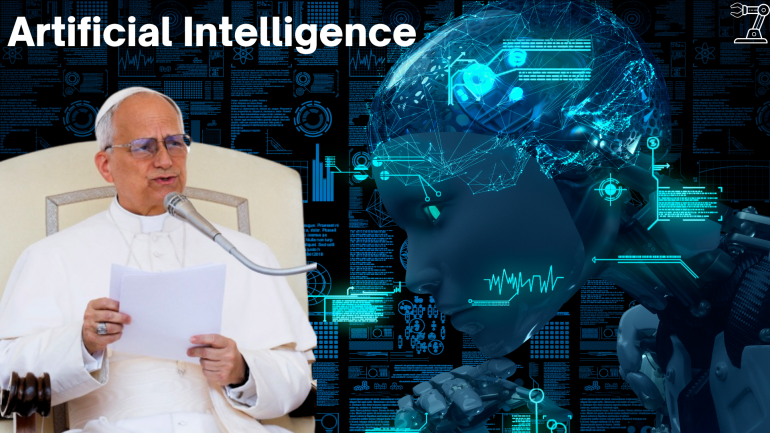
"On a larger scale, if academia has been infiltrated by AI such that there are unreliable machine-generated bibliographies, it calls into question the honesty of scholarship and validity of research."
The matter is especially controversial as Singapore universities are erecting rules around students' use of AI, and sometimes penalising them for it, while it seems that their very own professors are using it.
Views among lecturers, most of whom use AI, differ.
Several said that AI can help them brainstorm for ideas and connect them to sources and references.
Others said AI can speed up the grading process, especially for classes with many students. Yet others disagreed with any use of AI in this process.
Associate Professor Seshan Ramaswami, who teaches marketing at the Singapore Management University, said that AI does not have the specific domain knowledge needed to properly grade papers nor the human connection with the students.
"Even while an instructor's judgments of students' performance may be subjective, I think they would prefer that to the judgments of an impersonal piece of software," he told CNA.
However, Associate Professor Ben Leong, director of the AI Centre for Educational Technologies at NUS, told CNA that though AI might not be sufficiently reliable for grading high-stakes exams for now, “within the next five years, we will have AI grading that is more accurate and reliable than human grading," he said.
“It will not be 100 per cent accurate, but it will definitely be no worse than human graders."
Dr Jason Lim, a lecturer in architecture at the Singapore University of Technology and Design (SUTD), disagrees. "(If) a student puts in a certain amount of effort to submit something, I think we need to also reciprocate with an equivalent level of effort to evaluate whatever they produce instead of leaving it to some algorithm," he told CNA.
Assistant Professor Leonard Ng, from the School of Materials Science and Engineering at Nanyang Technological University, put it this way: "You can't take humans out of the loop because it's a sacred duty."
(Christopher Khoo is a Singapore-based freelance journalist and educator)
Radio Veritas Asia (RVA), a media platform of the Catholic Church, aims to share Christ. RVA started in 1969 as a continental Catholic radio station to serve Asian countries in their respective local language, thus earning the tag “the Voice of Asian Christianity.” Responding to the emerging context, RVA embraced media platforms to connect with the global Asian audience via its 21 language websites and various social media platforms.









